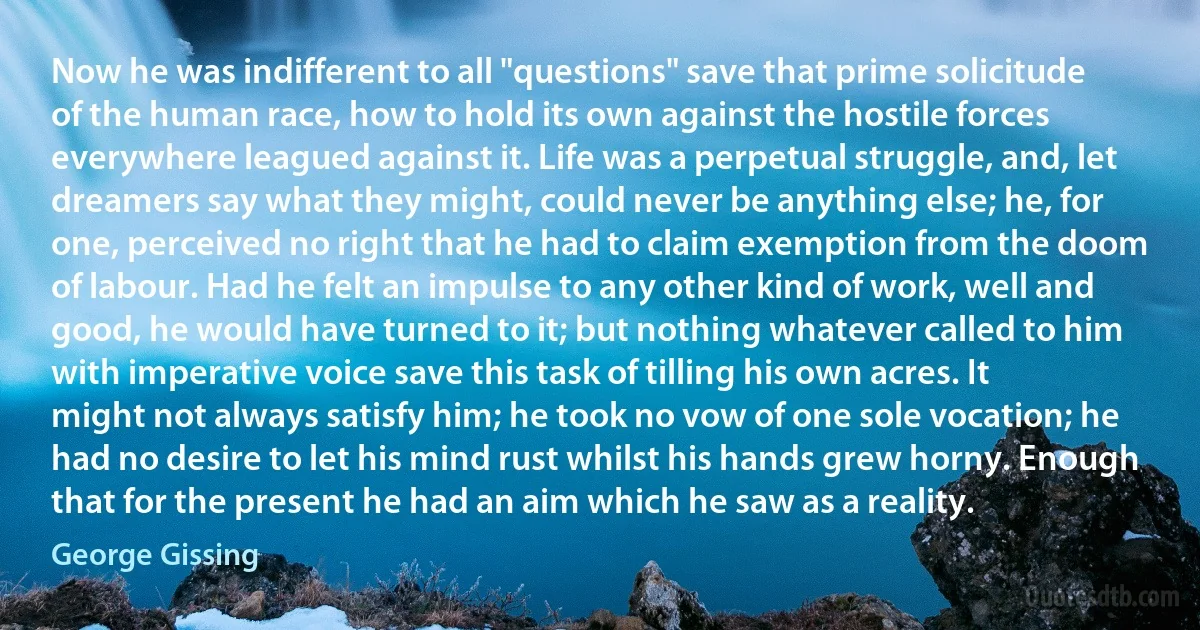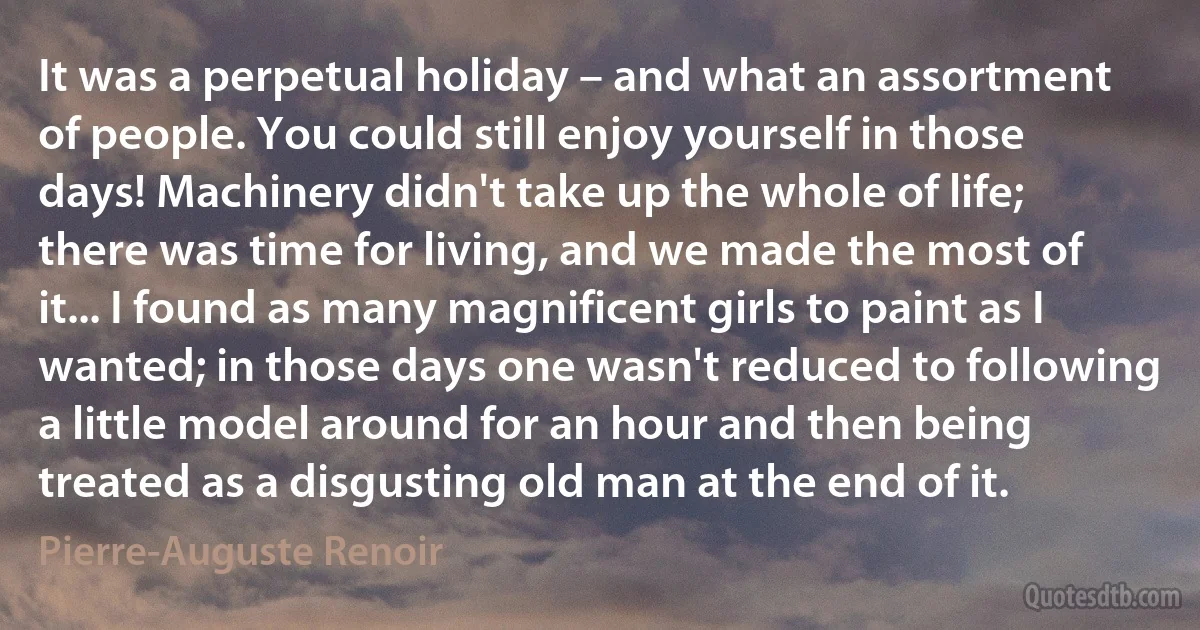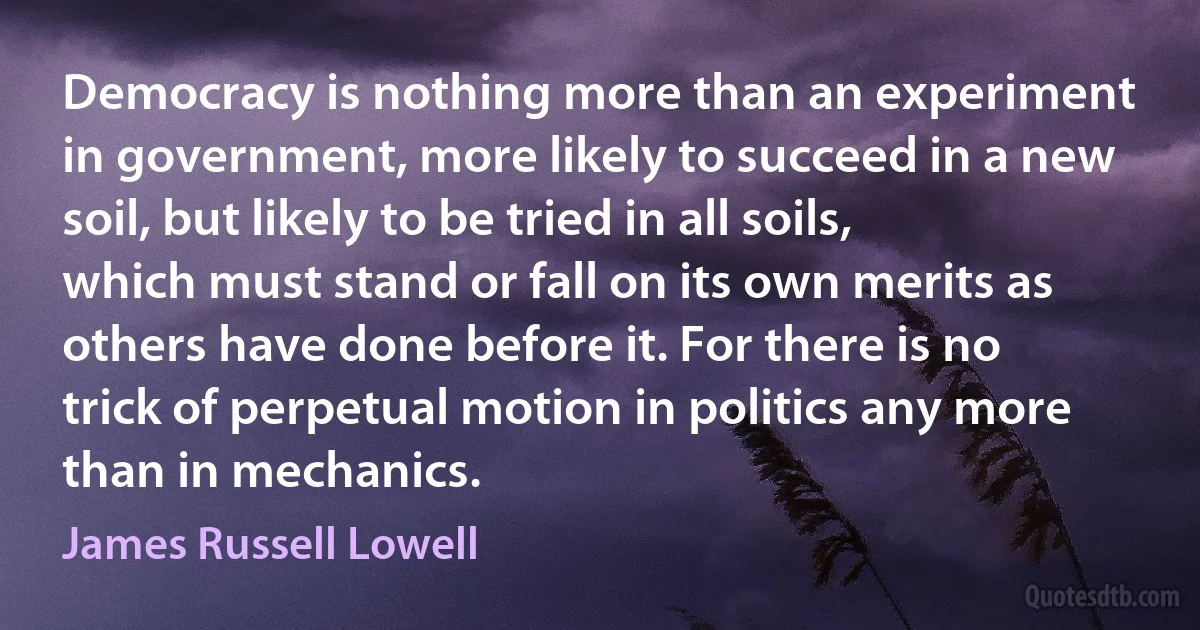Perpetual Quotes - page 8
And why should man, added he, pretend to an exemption from the lot of all other animals? The whole earth, believe me, PHILO, is cursed and polluted. A perpetual war is kindled amongst all living creatures. Necessity, hunger, want, stimulate the strong and courageous: Fear, anxiety, terror, agitate the weak and infirm. The first entrance into life gives anguish to the new-born infant and to its wretched parent: Weakness, impotence, distress, attend each stage of that life: and it is at last finished in agony and horror.

David Hume
O perpetual revolution of configured stars,
O perpetual recurrence of determined seasons,
O world of spring and autumn, birth and dying!
The endless cycle of idea and action,
Endless invention, endless experiment,
Brings knowledge of motion, but not of stillness;
Knowledge of speech, but not of silence;
Knowledge of words, and ignorance of The Word.
All our knowledge brings us nearer to our ignorance,
All our ignorance brings us nearer to death,
But nearness to death no nearer to God.
Where is the Life we have lost in living?
Where is the wisdom we have lost in knowledge?
Where is the knowledge we have lost in information?
The cycles of Heaven in twenty centuries
Brings us farther from God and nearer to the Dust.

T. S. Eliot
Capitalism has three innate characteristics that drive us towards destruction... firstly, that it generates and relies upon perpetual growth... (Second:)...the idea that our right to own natural wealth equates to the amount of money that we've got in the bank or we can borrow. So, you can take as much natural wealth away from other people as you like.... The third characteristic is the one that really ensures that people go along with capitalism, the idea that everyone can pursue - and can expect to find - private luxury.

George Monbiot
If, in some cataclysm, all of scientific knowledge were to be destroyed, and only one sentence passed on to the next generation of creatures, what statement would contain the most information in the fewest words? I believe it is the atomic hypothesis (or the atomic fact, or whatever you wish to call it) that all things are made of atoms - little particles that move around in perpetual motion, attracting each other when they are a little distance apart, but repelling upon being squeezed into one another. In that one sentence, you will see, there is an enormous amount of information about the world, if just a little imagination and thinking are applied.

Richard Feynman
When Texas became one of the United States, she entered into an indissoluble relation. All the obligations of perpetual union, and all the guaranties of republican government in the Union, attached at once to the state. The Act which consummated her admission into the Union was something more than a compact; it was the incorporation of a new member into the political body. And it was final.

Salmon P. Chase
Exercise is the technique by which one imposes on the body tasks that are both repetitive and different, but always graduated. By bending behavior towards a terminal state, exercise makes possible a perpetual characterization of the individual...It thus assures, in the form of continuity and constraint, a growth, an observation, a qualification.

Michel Foucault
He must be a born leader or misleader of men, or must have been sent into the world unfurnished with that modulating and restraining balance-wheel which we call a sense of humor, who, in old age, has as strong a confidence in his opinions and in the necessity of bringing the universe into conformity with them as he had in youth. In a world the very condition of whose being is that it should be in perpetual flux, where all seems mirage, and the one abiding thing is the effort to distinguish realities from appearances, the elderly man must be indeed of a singularly tough and valid fibre who is certain that he has any clarified residuum of experience, any assured verdict of reflection, that deserves to be called an opinion, or who, even if he had, feels that he is justified in holding mankind by the button while he is expounding it.

James Russell Lowell
Rawls resorted to Hegel in his internal reflections on a constitutional state. On the plane of inter-state relations, Kant remained his philosopher of reference, as the theorist of conditions for a perpetual peace. So too for Habermas. But since Kant failed to envisage the necessary legal framework for a cosmopolitan order, as it started to take shape through the permanent institutions of the United Nations, Habermas, when he came to review the progress made since 1945, also looked towards the philosopher of objective idealism. Measured against the sombre background of the disasters of the first half of the twentieth century, he decided, ‘the World Spirit, as Hegel would have put it, has lurched forward'. As we have seen, Bobbio was responsible for the most pointed appeal to Hegel of all. In one sense, he was more entitled to do so.

Perry Anderson
He describes him in general terms, as the most incomprehensible and formidable among men; as engaged in schemes, reasonably suspected to be, in the highest degree, criminal, but such as no human intelligence is able to unravel: that his ends are pursued by means which leave it in doubt whether he be not in league with some infernal spirit: that his crimes have hitherto been perpetrated with the aid of some unknown but desperate accomplices: that he wages a perpetual war against the happiness of mankind, and sets his engines of destruction at work against every object that presents itself.

Charles Brockden Brown



